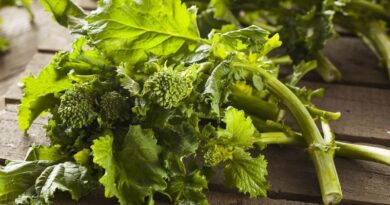Maintaining lung health is essential for overall well-being and respiratory function. However, our respiratory system plays a vital role in sustaining life, and the foods we consume can significantly impact our health. In this blog post, we will explore the seven best foods for lung health, aiming to nourish and support our respiratory system. Remember to prioritize a balanced diet that includes a variety of nutrient-rich foods to promote optimal respiratory well-being.
From nutrient-rich fruits to antioxidant-packed vegetables and omega-3 fatty acid sources, these foods offer a holistic approach to promoting lung well-being. Alongside a healthy lifestyle and avoiding lung irritants, these foods can contribute to maintaining healthy lungs for a lifetime. Understanding the connection between our diet and lung health is crucial for fostering a lifestyle that supports respiratory function.
Let’s delve into the world of nutrition and discover the nourishing power of these seven foods for optimal lung health.
Fueling with Nature’s Foods for Lung Health
Our lungs play a crucial role in our overall well-being by enabling us to breathe and oxygenate our bodies. To support optimal lung function and health, incorporating the right foods into our diet can make a significant difference. In this article, we’ll explore seven exceptional foods that can help promote lung health and improve your respiratory well-being.
Our lungs work tirelessly to ensure our body receives the oxygen it needs. Nourishing them with the right foods can contribute to their health and overall well-being.
Berries

Berries, including blueberries, strawberries, and raspberries, emerge as lung-loving superfoods due to their antioxidant-rich profile, especially in vitamin C. Packed with these potent antioxidants, berries play a crucial role in combating oxidative stress and inflammation within the lungs. The high vitamin C content in berries contributes to the overall antioxidant defense system, potentially reducing the risk of respiratory issues. Incorporating a variety of berries into your diet offers a flavorful and nutrient-packed strategy to support lung health.
The anti-inflammatory properties of these berries align with a holistic approach to respiratory well-being, making them a delicious addition to a lung-friendly diet. Embrace the vibrant hues and natural goodness of berries, recognizing the potential they hold in fortifying your respiratory system against oxidative challenges.
Quick Link: Natural Relief: 6 Food Items to Ease Menstrual Cramps
Leafy Greens
Leafy greens, exemplified by spinach and kale, stand as nutritional powerhouses, brimming with essential vitamins, minerals, and antioxidants. Packed with nutrients like vitamin C, vitamin K, and folate, leafy greens contribute to robust lung health and fortify the body’s defense mechanisms against respiratory ailments.
The antioxidants present in these greens play a pivotal role in neutralizing harmful free radicals, offering a protective shield for the respiratory system. The rich nutrient profile fosters overall well-being, supporting the body in its quest for optimal lung function.
By incorporating spinach and kale into your diet, you not only embrace their vibrant flavors but also empower your respiratory system with the nourishment it needs to thrive. Make these leafy greens a staple in your meals, relishing the natural goodness that fuels your lungs and promotes respiratory resilience.
Fatty Fish
Fatty fish, exemplified by salmon and sardines, emerge as nutritional champions, rich in omega-3 fatty acids. These healthy fats bring a dual benefit to lung health, possessing potent anti-inflammatory properties that effectively combat inflammation within the respiratory system. Omega-3 fatty acids play a pivotal role in reducing inflammation in the lungs, fostering improved lung function and overall respiratory well-being.
Regular consumption of fatty fish becomes a strategic dietary choice to harness the anti-inflammatory prowess of omega-3s, offering a natural and delicious approach to supporting lung health. By incorporating salmon and sardines into your diet, you not only indulge in their savory flavors but also provide your lungs with the essential fatty acids they need for optimal function and resilience.
Embrace the oceanic goodness of fatty fish, enhancing your lung health with each nutritious and flavorful bite.
Apples

Apples, beyond their delightful taste, boast a nutritional profile rich in flavonoids and dietary fiber. These compounds play a vital role in promoting improved lung function and reducing the risk of respiratory issues. The flavonoids present in apples contribute to the overall antioxidant defense system, offering a protective shield for the respiratory system against oxidative stress.
The dietary fiber in apples supports digestive health, indirectly influencing respiratory well-being through its systemic impact on the body. By including apples in your diet, you embrace a flavorful and nutrient-packed strategy to fortify your lungs.
The association between apples, flavonoids, and dietary fiber showcases the potential of this fruit as a delicious ally in supporting optimal respiratory health. Enjoy the crisp goodness of apples, recognizing the multifaceted benefits they bring to the table for your lungs and overall well-being.
Turmeric
Turmeric, with its golden hue, harbors curcumin, a potent anti-inflammatory compound. Renowned for its healing properties, curcumin holds the potential to mitigate inflammation, offering notable benefits to lung health and supporting overall respiratory wellness. The anti-inflammatory prowess of curcumin is particularly valuable in reducing oxidative stress within the lungs and combating inflammation that may contribute to respiratory issues.
By incorporating turmeric into your diet, you tap into the natural healing capabilities of curcumin, fostering a holistic approach to respiratory well-being. The vibrant spice not only adds depth to culinary creations but also serves as a flavorful ally in promoting lung health.
Embrace the richness of turmeric, acknowledging its potential to bring a golden touch to your respiratory resilience and overall health.
Also Read: 7 Sneaky Junk Foods You Didn’t Know About
Ginger
Ginger, celebrated for its zesty flavor, is a natural powerhouse with dual benefits of anti-inflammatory and antioxidant properties. This dynamic combination positions ginger as a compelling choice for alleviating lung irritation and promoting respiratory comfort. The anti-inflammatory nature of ginger extends its soothing effects to the respiratory system, potentially easing discomfort.
Additionally, its antioxidant properties play a crucial role in neutralizing harmful free radicals, contributing to overall lung health. Whether enjoyed as ginger tea or incorporated into meals, this versatile spice becomes a flavorful ally in supporting respiratory well-being.
Embrace the warmth and goodness of ginger, recognizing its potential to bring relief and comfort to your lungs, fostering a holistic approach to respiratory health.
Garlic

Garlic, renowned for its aromatic intensity, houses sulfur compounds that emerge as natural allies in promoting respiratory health. These sulfur compounds, including allicin, have been associated with reduced lung inflammation, showcasing garlic’s potential to alleviate respiratory discomfort. The anti-inflammatory properties of garlic contribute to a soothing effect on the lungs, fostering an environment conducive to respiratory well-being. Incorporating garlic into your diet, whether raw or cooked, offers a flavorful strategy to harness its respiratory benefits.
The link between garlic’s sulfur compounds and enhanced lung health underscores its role as a culinary gem with potential health advantages. Savor the pungent goodness of garlic, recognizing its capacity to bring a breath of fresh air to your respiratory system, embracing a holistic approach to lung comfort.
Nurturing our lungs with a diet rich in lung-friendly foods can contribute to better respiratory function, reduced inflammation, and an overall healthier lifestyle.
Final Words
As we navigate the complexities of modern life, prioritizing our respiratory health becomes increasingly important. The seven foods highlighted in this blog post offer a roadmap to nourishing and supporting our lungs. From the anti-inflammatory properties of certain fruits to the omega-3 fatty acids found in fatty fish, incorporating these foods into our diet can be a proactive step towards optimal lung function. Remember, individual responses may vary, and it’s essential to maintain a balanced and varied diet. By embracing these lung-loving foods, we empower ourselves with the knowledge to make mindful dietary choices that contribute to our overall respiratory well-being.
FAQs
While individual responses may vary, incorporating nutrient-rich foods into your diet can contribute to overall lung health and potentially improve respiratory function.
Limiting the intake of processed foods, excessive salt, and foods that may contribute to inflammation can be beneficial for lung health. Consulting with a healthcare professional for personalized advice is advisable.
Positive changes in lung health may take time and consistency. Adopting a balanced and nutritious diet, along with other healthy lifestyle practices, contributes to long-term well-being.
Many of the foods highlighted in this blog post offer nutrients and properties that can be supportive of respiratory health. However, individuals with existing respiratory conditions should consult with their healthcare provider for personalized guidance tailored to their specific needs.







